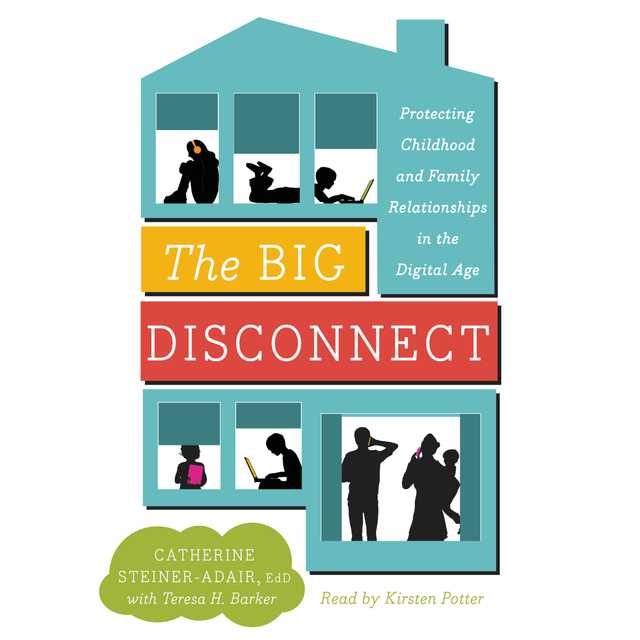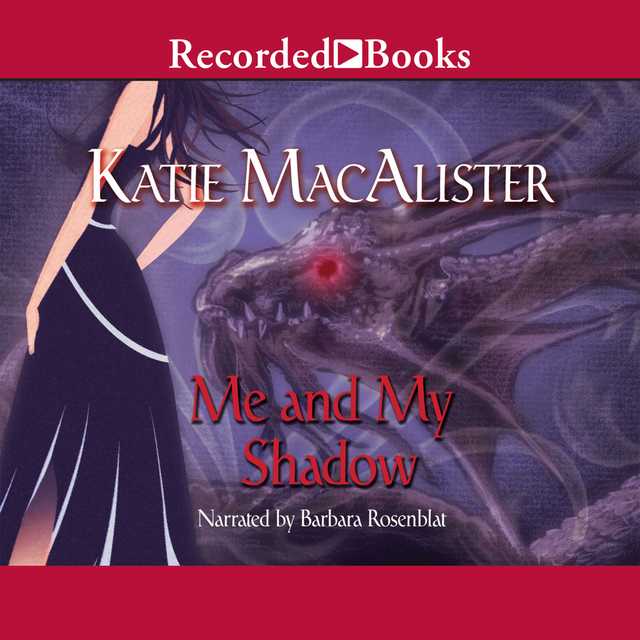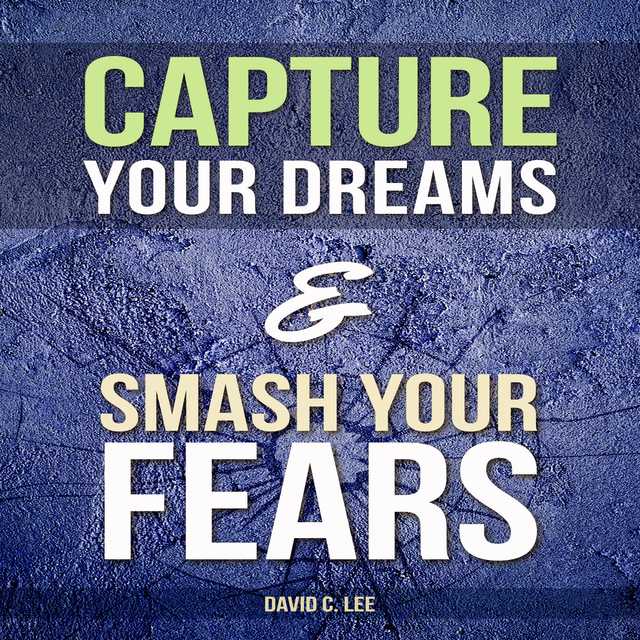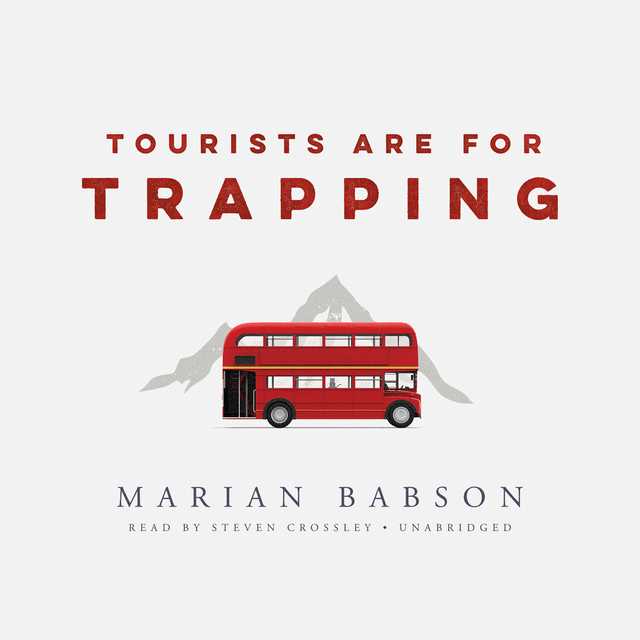The Big Disconnect Audiobook Summary
Have iPads replaced conversation at the dinner table?
What do infants observe when their parents are on their smartphones?
Should you be your child’s Facebook friend?
As the focus of family has turned to the glow of the screen–children constantly texting their friends, parents working online around the clock–everyday life is undergoing a massive transformation. Easy availability to the Internet and social media has erased the boundaries that protect children from the unsavory aspects of adult life. Parents often feel they are losing a meaningful connection with their children. Children are feeling lonely and alienated. The digital world is here to stay, but what are families losing with technology’s gain?
As renowned clinical psychologist Catherine Steiner-Adair explains, families are in crisis around this issue, and even more so than they realize. Not only do chronic tech distractions have deep and lasting effects, but children desperately need parents to provide what tech cannot: close, significant interactions with the adults in their lives. Drawing on real-life stories from her clinical work with children and parents, and her consulting work with educators and experts across the country, Steiner-Adair offers insights and advice that can help parents achieve greater under-standing, authority, and confidence as they come up against the tech revolution unfolding in their living rooms.
We all know that deep connection with the people we love means everything to us. It’s time to look with fresh eyes and an open mind at the disconnection we are experiencing from our extreme device dependence. It’s never too late to put down the iPad and come to the dinner table.
Other Top Audiobooks
The Big Disconnect Audiobook Narrator
Kirsten Potter is the narrator of The Big Disconnect audiobook that was written by Catherine Steiner-Adair
Catherine Steiner-Adair, EdD, is an internationally recognized clinical psychologist, school consultant, author, and speaker. She maintains a private practice in Massachusetts, is a clinical instructor in the Department of Psychiatry at Harvard Medical School and an associate psychologist at McLean Hospital, and speaks worldwide to numerous audiences, including educators, health professionals, PTAs, religious groups, corporations, and nonprofit organizations.
About the Author(s) of The Big Disconnect
Catherine Steiner-Adair is the author of The Big Disconnect
More From the Same
- Publisher : HarperAudio
- Abraham
- American Gods [TV Tie-In]
- Dead Ringer
- House of Sand and Fog
- Prey
The Big Disconnect Full Details
| Narrator | Kirsten Potter |
| Length | 10 hours 1 minutes |
| Author | Catherine Steiner-Adair |
| Publisher | HarperAudio |
| Release date | August 13, 2013 |
| ISBN | 9780062298850 |
Additional info
The publisher of the The Big Disconnect is HarperAudio. The imprint is HarperAudio. It is supplied by HarperAudio. The ISBN-13 is 9780062298850.
Global Availability
This book is only available in the United States.
Goodreads Reviews
Lynne
September 22, 2014
I'm so glad I read this book. Definitely prompted me to make a serious evaluation of our relationship with tech and the internet as a family and as individuals, and contains a trove of really, really important information for parents about how all of the tech in our children's lives affects them in
Andrea
April 25, 2014
This book really made me think. As a parent of a young daughter, I have been thinking a lot about the intersection between childhood and technology, and what it means to raise kids in the age of Iphones and Ipads and ever pervasive screens. I would recommend it to anyone interested in how tech can affect relationships, even if you don't have a child yourself. Especially interesting are the case studies the author draws from as a clinical therapist where she interviews kids and asks them how they feel about their parents' tech use. What I found most fascinating was how the author not only talked about the importance of limiting screen time for young children (something we have all heard), but she also talked about the importance of parents modeling their own tech use in responsible ways. What does it mean when you tell your child to stay off screens, but you are glued to your phone during dinner? How does this impact family connection? Fascinating stuff.
Monique
October 30, 2014
Lots of good info: Empathy is critical step in early childhood and lifetime. It takes time and practice to sink in. Maryanne Wolf writes extensively about the tech effect on cognitive processes in the young brain in her book "Proust and the Squid: The Story and Science of the Reading Brain." She explains that the speed and superficiality of the tech experience have thinned the neural experiences that create empathy. In contrast, activities such as reading books or other substantive content create complex arrays of neural pathways, the necessary rich weave of interconnectedness that develops empathy and allows it to deepen (51).Very little in life prepares parents for the dramatic shift from a me-centered life, or even a couple's we-centered life, to the baby-centered life. A crucial part of parenting in that first year or two is that you realize that if you are going to be a responsible and responsive parent, then it's all about the baby--you are going to come second, and that's a hard lesson. Tech aids and abets the impulse we have to avoid that level of responsibility and that level of self-sacrifice (73-74).Unlike speech and language development, for which the brain comes equipped with neural circuitry, there are no ready circuitries for reading. Those neural pathways and networks take years to develop, years of layered learning to create a circuit that moves from being a 'decoding machine' to being a circuit wired for comprehension (Maryann Wolf) 79Research suggest that the process of tapping a screen or keypad and engaging with the screen may itself be rerouting brain development in ways that eliminate development of essential other neural connections your child needs to develop reading and higher-level thinking later 79Parents are often unprepared for the hard years of early parenting when children are so uneven and unpredictable, the tasks are so repetitive, and each day requires endless patience and attentive guidance of the children 118Children need to see that you can hold their anger and help them hold it and resolve it by soothing them and empathizing with them 122Find opportunities to help your child learn how to self-regulate and do the inner work needed to adjust to circumstances in healthy ways, practicing choices that support her well-being. 123As parents, we must find the social and emotional head space to calm ourselves and react to all of these minimoments in nuanced ways. In our everyday interactions w/our children we are teaching the same thing repeatedly--self-regulation and social and emotional skills--but we have to be able to focus on these tasks w/genuine interest and presence. 125Page and screen are two different experiences for young children. A kid only imagines what his life experience allows, and watching violence is different from imagining violence 127.--Think fairytales
Karel
October 01, 2016
I love the consistent, persistent focus on how parents can change our own behavior, turn improve our children's lives and family situation. In so many ways she tells real stories showing how we can set a better example, scripts for communication, and techniques for staying emotionally grounded.As a Harvard trained actively practicing clinical psychologist, the author has tremendous real world practical experience. Unfortunately this means she has seen so much go wrong, especially when she gets called in. So in her attempts to prevent the worst, I feel she advises parents and schools to do too much. She idealizes a slower world with more wisdom about human connections and a slower speed of human interaction. I'm not sure that's what the modern world will in anyway become, nor what young people or millennials are aiming at.The advice at the end didn't feel as practical as I'd hoped to, but there is still much to take from it. Valuable book from parents and a strong perspective especially for families who really need a lot of changes.
Jennie
October 05, 2014
Only about halfway into this, but feel compelled to write - what I was afraid was going to be stale warnings and reprimands about parents letting their kids live so much of their lives online is instead a fresh, thought-provoking, and realistic perspective. I'm riveted, and despite the fact that I'm writing this on my iPhone, I have already changed some of my behaviors and seen an immediate difference in my relationships.
Susan
September 21, 2015
This is a profoundly important book for anyone who works with kids. Big takeaways:--Tech affects the brain development of young children. We are literally shaping our children's minds during those formative years.--Parents are modeling tech habits for our kids. If we are glued to our devices, don't expect our kids to act any differently.--Children are exposed to adult images and ideas at younger and younger ages. --Parents must be proactive in the way they use tech and the guidelines they set for the home.--Tech-free family interaction and play is essential for well-rounded families and confident kids.--Dialogue with kids about their tech habits and the expectations we have for them. Parents, not kids, own and control the devices.This book is eye-opening in terms of what tech is doing to our society and how it is affecting our children. The book doesn't present tech as a bad thing, but rather advocates mindful, proactive interaction with tech, allowing tech to serve us rather than control us.
Jessica
August 21, 2013
'The Big Disconnect' has much to recommend it. I whole heartedly encourage any parent or soon-to-be parent to read this book. In a very readable and thoughtful way, Ms. Steiner Adair outlines the impact that technology has on family life. The bulk of the book is chronological walk through, from birth to adolescences, discussing the impact, both negative and positive, that screens, the Internet and other technology can have child development. And parents and young adults are not exempt from scrutiny either. She begins the book with a startling look at how parents' relationships to their gadgets can negatively impact family interactions and the psychological growth of their children. This seems to be her underlying argument, that adults acceptance of the pervasiveness of technology in modern life, and their growing addiction to it, has created a laissez-faire attitude about the constant influx of stimuli and information into even the youngest of lives (eighteen month olds playing with apps, ten year olds emailing each other porn??). And this attitude, this lack of filtering or even examination, is creating a dangerous environment for the most vulnerable among us.I would stress that this book is not another "don't let your kid watch too much TV" warning. As I stated earlier, she does outline several cases where educational programming, the use of computers in schools and other adult moderated interactions with the wide world of growing information access has been very helpful for children. She points out that programs like Skype can extend the family circle to far flung relatives in other states or countries. She also takes pains to point out that social media has helped troubled teenagers find help and support outside the family during crisis. She strikes an excellent balance and avoids writing a panicky, Chicken Little-like tract. Although some of her anecdotes from her private therapy practice are terrifying and disturbing, her overall tone is a positive one. She is encouraging and upbeat, reassuring the reader (particularly in the final chapters) that a balance can be struck, that we can integrate technology into our families. But we must do so by placing the emphasis in our daily lives on face-to-face interactions, valuing family time over screen time, respecting our children as individuals and creating space for what she calls "slow time no time always enough time". I would venture that anyone who reacts badly to her argument or advice in this book is in denial about their addiction to screens and needs to take a step back. How can a person be offended to be told that they should put off checking their email in favor of cuddling with their toddler?I have only two qualms with this book. The first may stem from my already limited interaction with media and technology. She always refers to the media-Internet-screen-game conglomerate as "tech". I found this short hand to be a bit disingenuous. And she had a few other trendy phrases that are perhaps passed around the Internet that I had never heard before that I found jarring. This is admittedly a personal style preference. The word "technology" would have worked just as well for me. I don't know if this is common parlance or something she coined, but it grated on me every time I saw it (which was all the time in this book).My second objection is a bit more serious. Her lack of footnotes and citations in the text of the book is hard for me to swallow. This is, after all, a controversial topic. Many people do not want to believe that they way they and their children interact with their gadgets is potentially harmful. If I come across a disturbing statistic, I want to know where it came from so I can judge the validity of the source. She does have a notes section, where all of her sources are citied, but it is organized by page only, not citations. This makes it more difficult to back up an argument, or investigate the research she is using. To see the words "Research indicates" in the text without an immediate clue as to what research or by whom weakens the argument. And having to comb through the sources by page number is at best annoying. I assume she chose to present her book in the way she did because it seems more accessible and readable. I would argue that people can choose to skip footnotes if they like, but for those of us who may be facing opposition from family and friends about the role technology plays in our lives, it is helpful to have all the information on hand, to be able to go to the source immediately. I would rather present people with a thorough and scholarly work to defend my position than another (seemingly) pop-psychology book on parenting.Nonetheless, "The Big Disconnect" is a thorough and scholarly work (even if it doesn't always look like one) and even the most iPhone or Blackberry addicted adult should put aside their defensiveness and read it. We have a habit in our culture of complaining that we don't have enough time, that our lives are too stressful and yet we avoid taking practical steps to slow ourselves down and reconnect with the people we love. Ms. Steiner-Adair through the accumulation of careful research and anecdotes presents us with flexible working solutions to calm our and our children's overstimulated brains and rediscover "slow time no time always enough time".
Naomi
March 06, 2014
I particularly liked the last chapter of this book, which focused on resilient families learning to navigate the digital age well. Most of the book is focused on the problems, which is important, and how families try to handle them. From my perspective, families - just like individuals - are in the midst of sorting out how to live well with these tools that can be alluring substitutes for relationships rather than one of the many ways we can nurture deeper relationships. As Catherine Steiner-Adair points out, that discernment is made extra difficult by the reality that children are learning how to discern and parents guiding that learning and learning how to discern what works and what doesn't at the same time. There's no old body of wisdom to draw on, just parallel practices and principles - and neurological and behavioral research. I would recommend this book for parents with a comfortable reading level at college level or higher or for use in parental spiritual reading groups, for religious professionals working with families navigating social media and digital device discernment and practices, and for educators and family therapists. My hope is for future books with language and writing that is even more accessible.
Trudy
November 07, 2013
This book encourages parents to think carefully about the role of devices and screen time in the family. Smart parents already recognize how much time families interact with screens instead of each other, and this book helps round out the broader picture of how the influx of digital connectivity has changed the social sphere for all of us and what it is doing to children of all ages.Real-life stories of how things can go wrong are eye-opening and serve as a reminder or warning to parents to consider the developmental maturity of their children in a wide-open Internet age. The overall message isn't to frighten us into choosing to bar our doors against new technology, but to comprehend the spectrum of effect it has on family life and school age children. The book is asking us to constantly and wisely choose what is best for our individual families.The biggest reminder I got from this book is to consciously choose to be present with those around you instead of impulsively staring at a screen. There are much more satisfying things to tune into in real life, and we model behavior for our children.
Emily
January 16, 2018
This was a readable, well-researched book on the affects of screen time on kids at each age in their development. While there were moments of "oh no, we are doomed" as I read it, the conclusion is ultimately a hopeful one. Media and technology can be helpful but also get in the way of good family relationships if we don't set boundaries - and that is as true between spouses as it is between parents and their kids. I was surprised at how relevant this book was, five years after publication. Facebook, Instagram, and Google are even bigger parts of our culture today than they were in 2013, yet this book still made sense.
Nitu
October 09, 2017
This book is a must-read for parents with children, teachers, anyone who connects with children! Technology has not been around long enough for us to understand the repercussions of the choices we are making for ourselves and our children on a day-to-day or even moment-to-moment basis. As adults, we have learned to adopt and adapt to technology as a part of our lives. For our children, it's a integral part of their lives, but we have to make sure they don't lose their ability to relate to people face-to-face. We have to make sure we as parents are connecting with them, and teaching them how to connect with the world around them. No technology can replace the human touch.
Lori
October 26, 2015
My son's headmaster made this book required reading for his teachers, and then held a book club meeting for parents who wished to read it. This is one of the many things I love about this school.If you are constantly attached to your phone, you're going to hate this. If your kids play video games or watch TV all day, you'll probably not like it, either. But that's precisely the point. No parent wants to realize too late what it meant to your child to sit across the table from their parent and their lap top screen is up and there's no eye contact at all. I found this to be one of the better parenting books out there and encourage you to read it and take from what what you will.
Andrea
August 15, 2018
I enjoyed reading this. I suppose that if you begin reading this book with your opinions already fixed about technology and kids, you mind not change your mind. But, if you take into account that the author is a therapist who sees the ultimate worst-case scenarios with kids and tech, I think it's an interesting read. Even if some of the examples are unrelatable, it would seem that technoference is damaging to kids. Is technology evil? Is it ruining childhood? No, but I think we can admit it's changing childhood, and we need to be aware of how.
Most Popular Audiobooks
Frequently asked questions
Listening to audiobooks not only easy, it is also very convenient. You can listen to audiobooks on almost every device. From your laptop to your smart phone or even a smart speaker like Apple HomePod or even Alexa. Here’s how you can get started listening to audiobooks.
- 1. Download your favorite audiobook app such as Speechify.
- 2. Sign up for an account.
- 3. Browse the library for the best audiobooks and select the first one for free
- 4. Download the audiobook file to your device
- 5. Open the Speechify audiobook app and select the audiobook you want to listen to.
- 6. Adjust the playback speed and other settings to your preference.
- 7. Press play and enjoy!
While you can listen to the bestsellers on almost any device, and preferences may vary, generally smart phones are offer the most convenience factor. You could be working out, grocery shopping, or even watching your dog in the dog park on a Saturday morning.
However, most audiobook apps work across multiple devices so you can pick up that riveting new Stephen King book you started at the dog park, back on your laptop when you get back home.
Speechify is one of the best apps for audiobooks. The pricing structure is the most competitive in the market and the app is easy to use. It features the best sellers and award winning authors. Listen to your favorite books or discover new ones and listen to real voice actors read to you. Getting started is easy, the first book is free.
Research showcasing the brain health benefits of reading on a regular basis is wide-ranging and undeniable. However, research comparing the benefits of reading vs listening is much more sparse. According to professor of psychology and author Dr. Kristen Willeumier, though, there is good reason to believe that the reading experience provided by audiobooks offers many of the same brain benefits as reading a physical book.
Audiobooks are recordings of books that are read aloud by a professional voice actor. The recordings are typically available for purchase and download in digital formats such as MP3, WMA, or AAC. They can also be streamed from online services like Speechify, Audible, AppleBooks, or Spotify.
You simply download the app onto your smart phone, create your account, and in Speechify, you can choose your first book, from our vast library of best-sellers and classics, to read for free.
Audiobooks, like real books can add up over time. Here’s where you can listen to audiobooks for free. Speechify let’s you read your first best seller for free. Apart from that, we have a vast selection of free audiobooks that you can enjoy. Get the same rich experience no matter if the book was free or not.
It depends. Yes, there are free audiobooks and paid audiobooks. Speechify offers a blend of both!
It varies. The easiest way depends on a few things. The app and service you use, which device, and platform. Speechify is the easiest way to listen to audiobooks. Downloading the app is quick. It is not a large app and does not eat up space on your iPhone or Android device.
Listening to audiobooks on your smart phone, with Speechify, is the easiest way to listen to audiobooks.






























